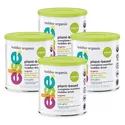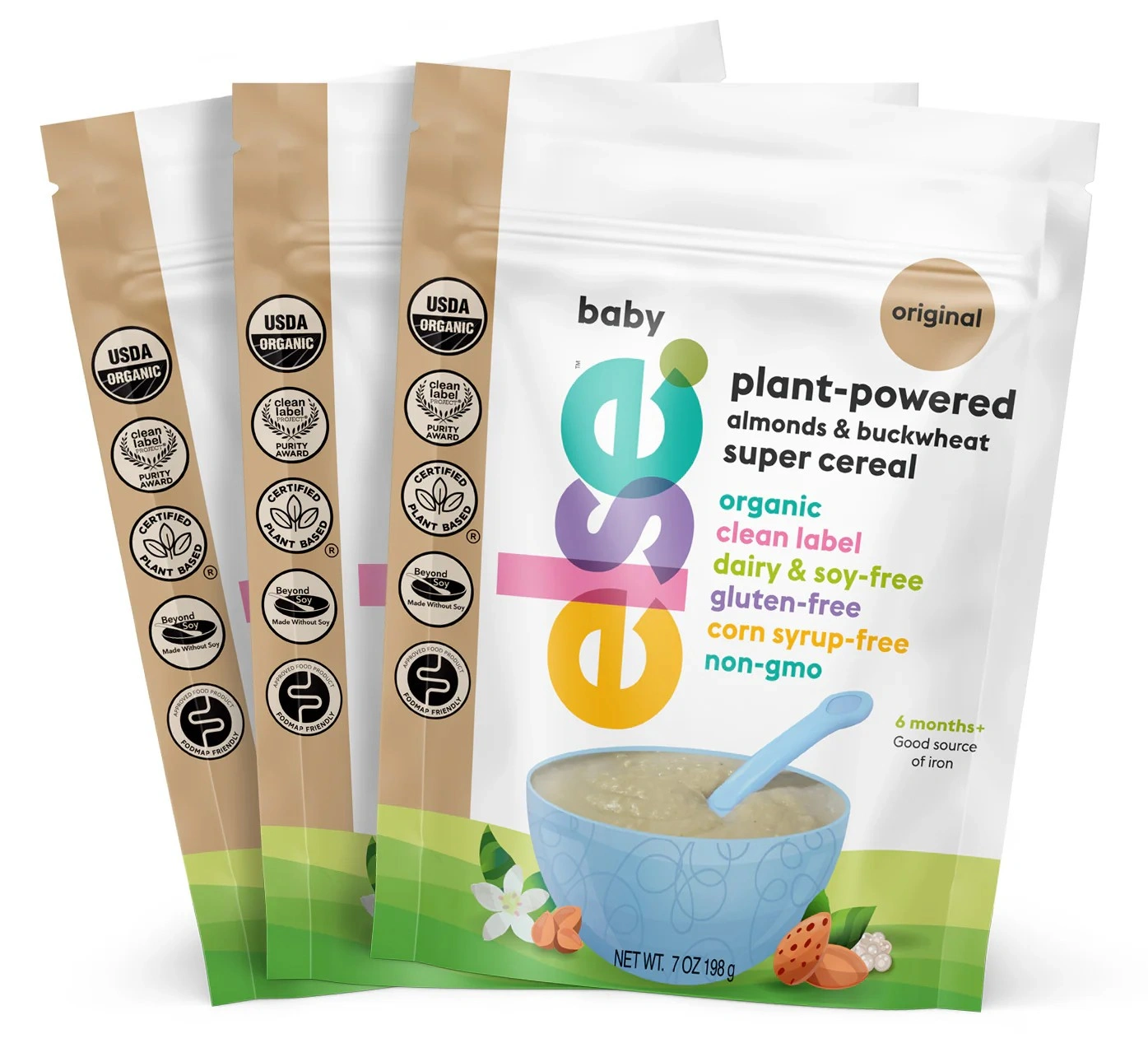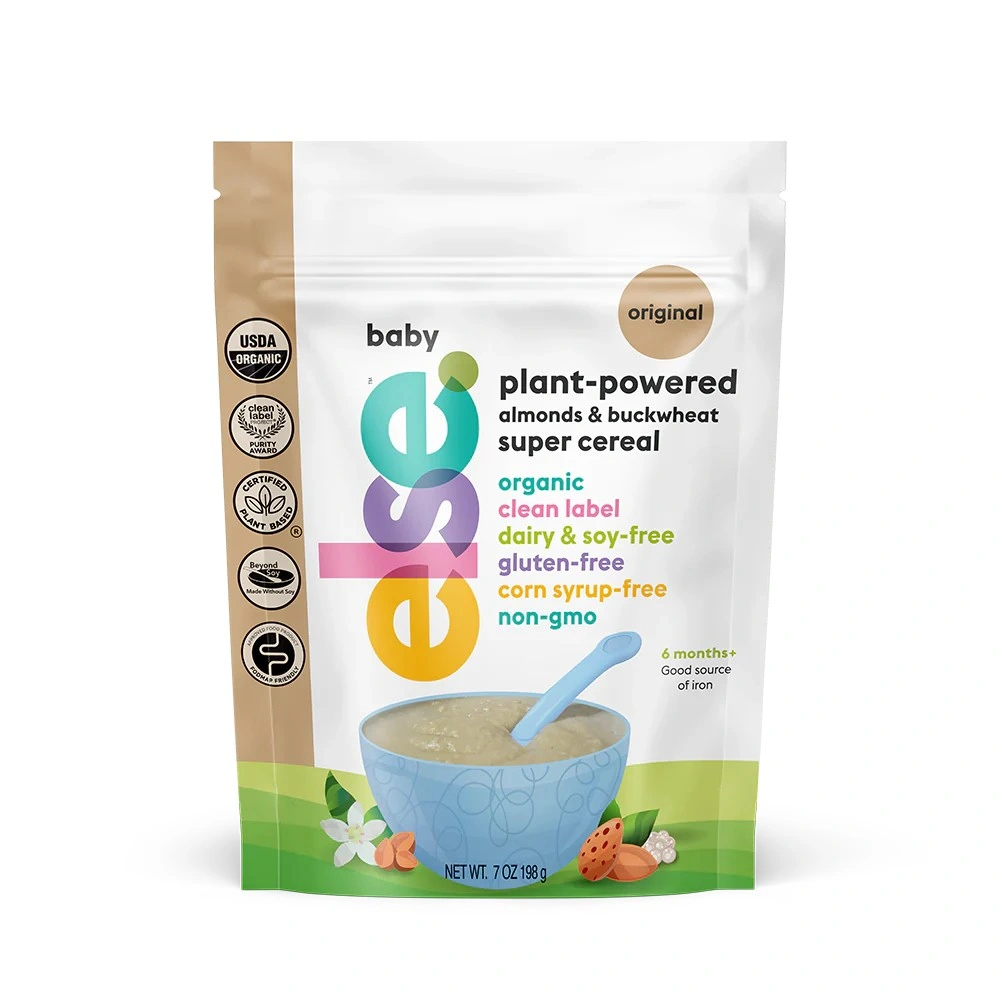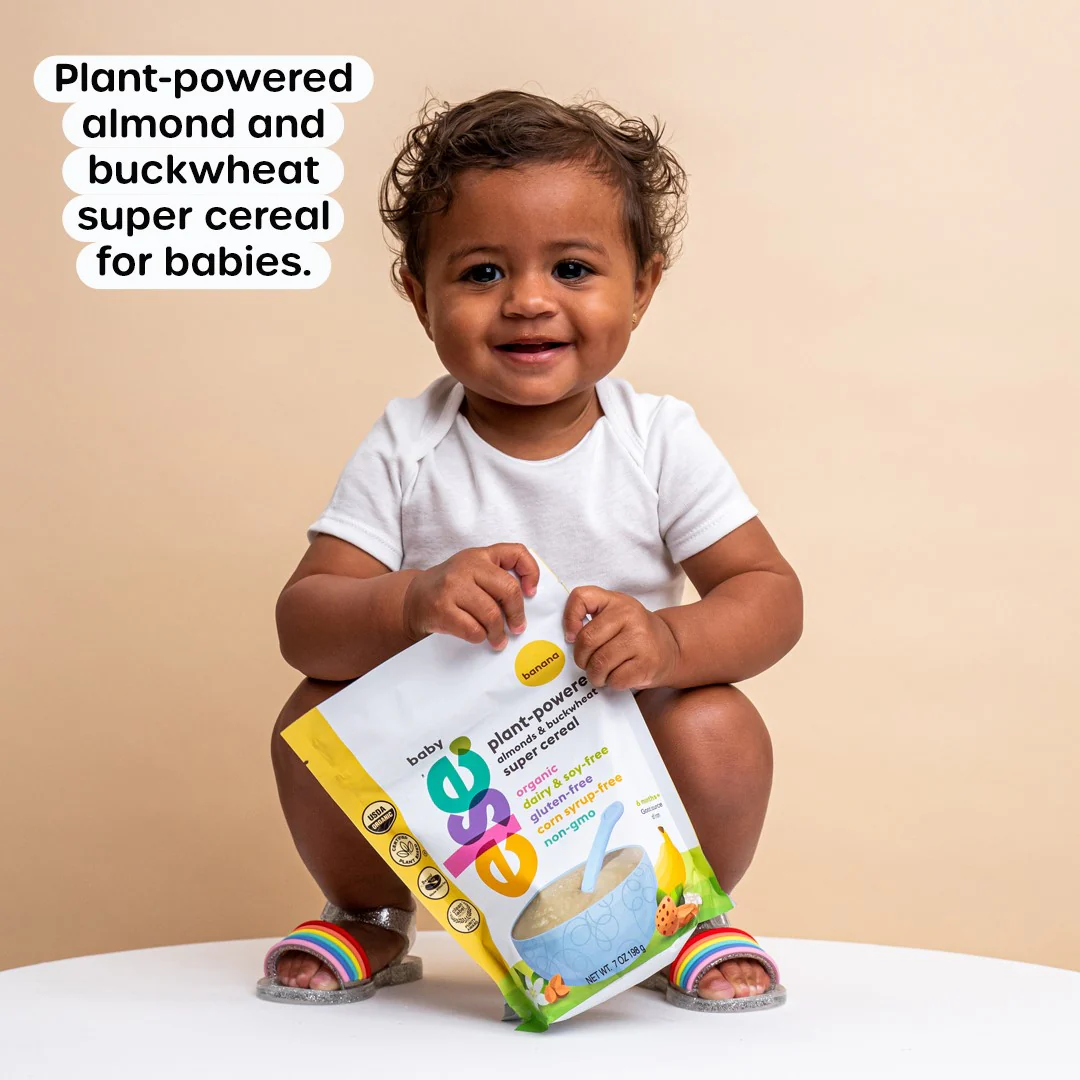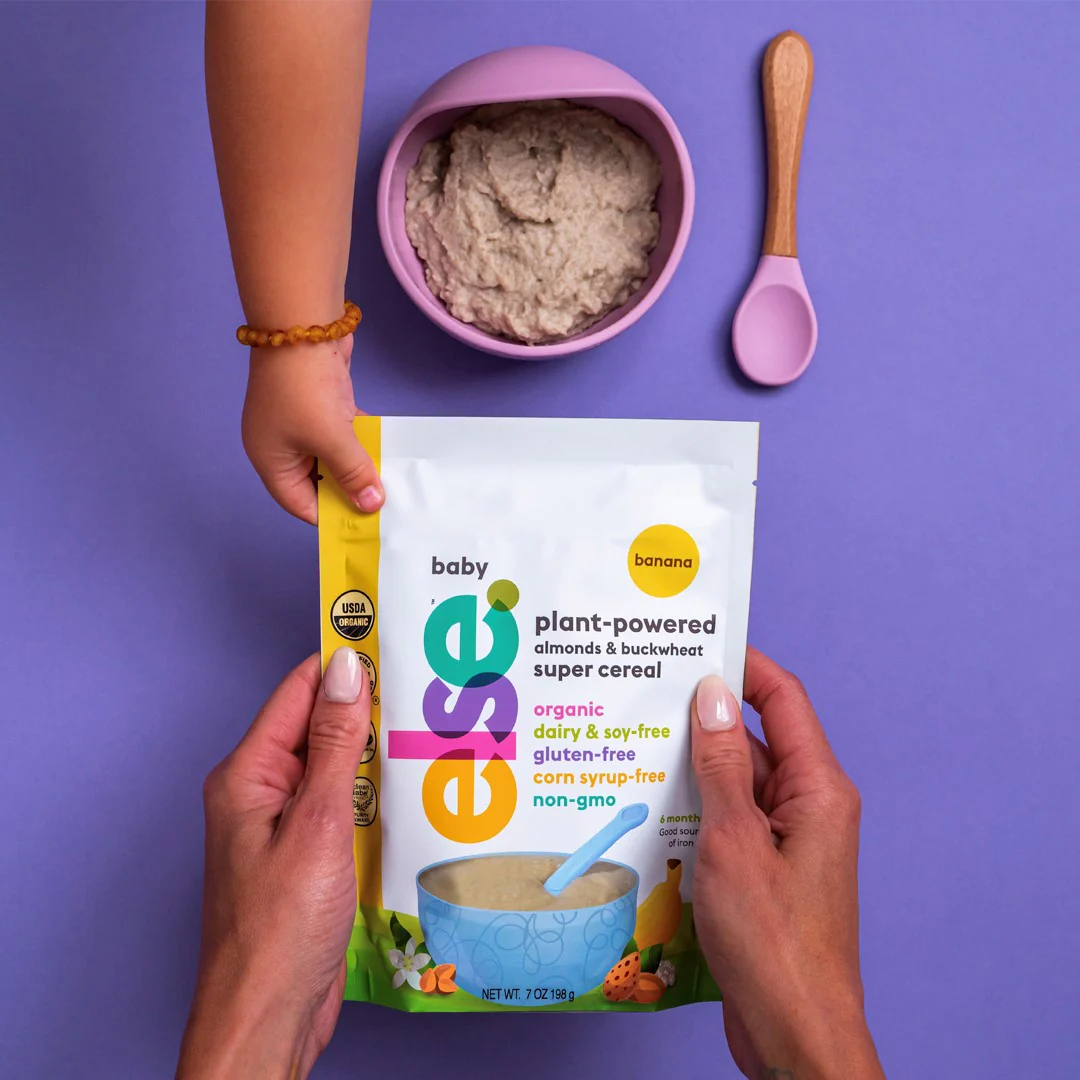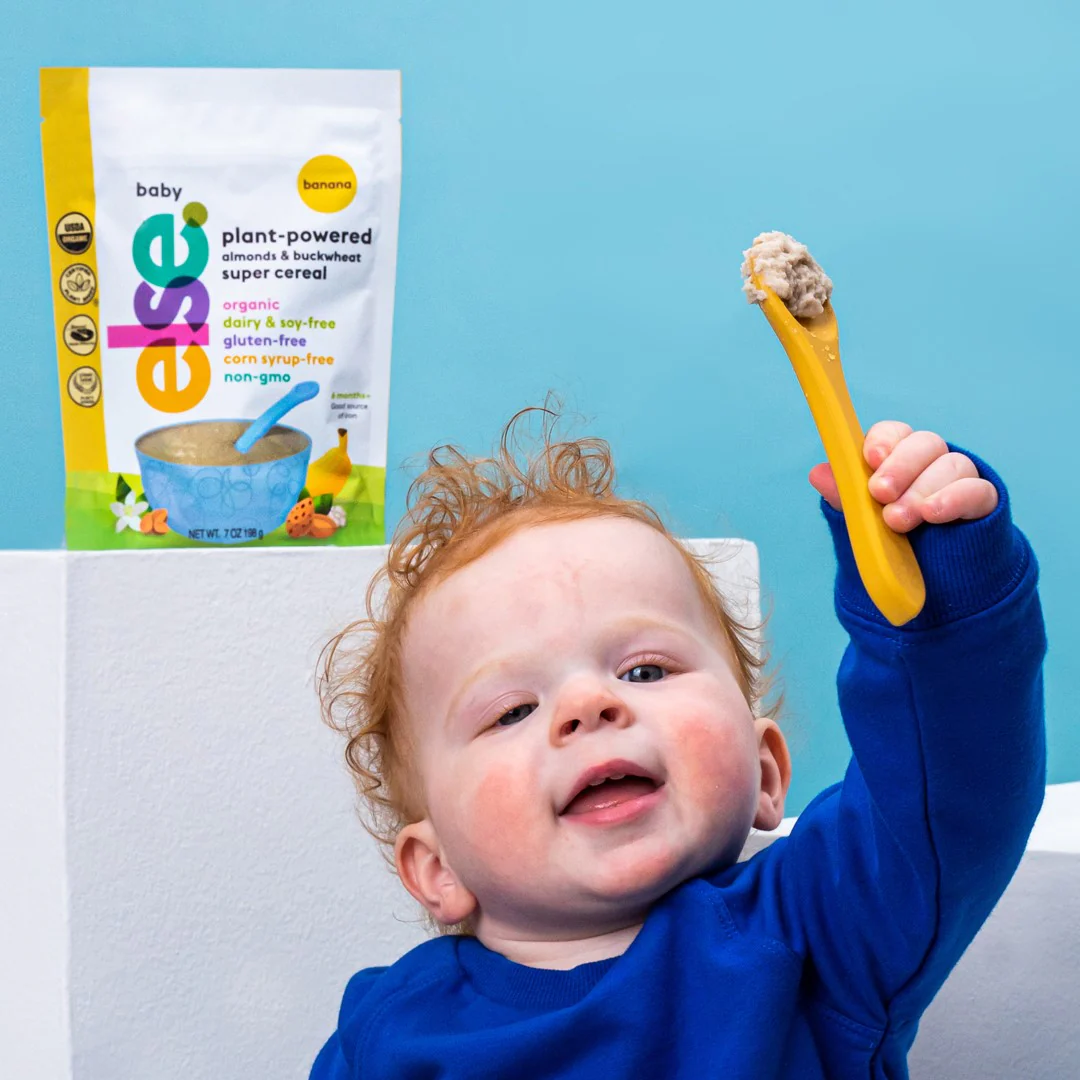Supplementing with Formula at Night: A Step-By-Step Guide
Understand the ins and outs of supplementing with formula at night for your breastfed baby. Learn when to start, how it affects your baby, and the best formula options.
Updated December 2, 2024

When it comes to feeding your baby, you always want what’s best for them - whether choosing to breastfeed, formula feeding, or employing a combination of both.
Even though breast milk provides all of the essential nutrients and antibodies your little one needs, there may come a time when you may want or need to start supplementing with formula at night.
This decision may come with many questions. For instance, how do you start introducing formula to your breastfed baby at night? What is the best formula at night for your breastfed baby? Is it okay to supplement your breastfed baby’s diet with formula in the first place?
When answering these questions and more, providing peace of mind regarding formula feeding is helpful.
Is It Okay to Supplement My Breastfed Baby’s Diet with Formula?
Many moms start with the intention of breastfeeding exclusively, but for whatever reason, it may not always go as well as planned. At the same time, other moms may know from the get-go that they want to supplement with formula at night.
There is no right or wrong, and it is okay to supplement your breastfed baby’s diet with formula!
» Discover how to transition your baby from breastmilk to formula
Benefits of Introducing Formula to Your Baby
There are several reasons why you may be thinking about introducing formula to your breastfed baby at night and why it can be beneficial:
- It is medically needed: You may need to supplemented with formula If your baby isn’t gaining the appropriate amount of weight, is dehydrated, or is not latching on the breast properly. This can happen anytime during the baby’s first year, but more often during the first two months. In all these cases, it can be difficult for a baby to get enough calories and nutrients from breast milk alone, so supplementing with formula may be necessary.
- You have a low milk supply: For various reasons, some women may be unable to produce or pump enough breast milk. If your pediatrician determines you have a low supply, starting formula at night for your breastfed baby can supplement the nutrients your little one needs.
- You are returning to work: It’s common for milk supply to dip a bit when you return to work. This is often due to having less frequent feeding sessions and being away from the baby longer.
- You’re physically or mentally drained: Breastfeeding can be wonderful, but it can also be exhausting for many women. Supplementing with formula at night can take the pressure off of you and give you much-needed rest.
Enlist your partner to take charge of this feeding, too, if possible. This is not something to feel guilty about!
Introducing formula at night can help get your baby used to taking the formula and drinking from a bottle so that there is an easier transition if this happens.
Signs That Baby Needs a Supplemental Formula for Growth
If you’re wondering when the right time to start supplementing with formula at night is, there are a few key signs that your baby may need it now.
- According to the growth chart, they’re not growing appropriately: If your baby’s weight is lower than it should be from exclusively breastfeeding, no matter what you do, ask your pediatrician about formula supplementation. In this case, adding formula at night for your breastfed baby can be that added boost your little one needs to bump his numbers higher up on the charts.
- They mostly seem very fussy and uncomfortable: If they often appear fussy or unsatisfied after breastfeeding, it’s possible they may not be taking in enough. This could also indicate something else, such as reflux or food intolerance, so it’s best to consult your doctor first.
- They are lethargic: If they lack energy and constantly fall asleep, that could be a sign they are not getting enough nutrition from your breast milk.
When to Start Supplementing with Formula
There is no hard and fast rule as to when you should start supplementing your breastfed baby with formula at night. You can start at any time that feels right for you!
However, if your goal is to breastfeed primarily, experts recommend waiting (if possible) at least three weeks until supplementing with formula. This is to allow enough time for your milk supply to come in fully and to establish a regular breastfeeding routine first.
After these three weeks, it’s a matter of determining what’s best for your little one and your family’s needs. Initially, introducing formula to your breastfed baby at night is an easy way to transition them into a new routine without changing your feeding schedule during the day.
Then, over time, you may use more formula daily, depending on what works best for your family.
How Will Supplementing with Formula Affect the Baby?
Supplementing with formula can help provide the nutrients your baby needs for growth that they may not be able to get otherwise. It's the smart option for many families. Here are a few changes that may occur in your baby once you start supplementing their diet with the formula:
Your Baby May Temporarily Become Less Interested in Breastfeeding
If it’s your first time introducing a bottle to your baby, you may find that your baby prefers the bottle. This may be especially true when starving because a bottle can deliver the milk much more quickly to the baby than at the breast.
But this doesn’t mean your baby will stop breastfeeding! You must remind them that your breastmilk is still their primary source of nutrition by offering your breast frequently throughout the day.
Paced bottle feeding can also help with this, a bottle-feeding method that closely mimics a breastfeeding experience.
Your Baby’s Stool May be Different
As you introduce formula, you may notice your baby’s stools change. The stool will likely be firmer have a more pungent odor, and your baby will have less frequent bowel movements. This is all normal and to be expected, and nothing of concern.
Your Baby May Go Longer Between Feedings
The type of protein in the formula is typically slower-digesting than that of breast milk, so you may find that your little one can last longer between feedings. This doesn’t happen with every baby, but it is surely a welcome benefit when it does!
Even though it may seem like many changes occur when formulas are introduced, there’s no need to worry. Your little one (and you!) will adjust to the feeding routine change in time.
Best Formula for Supplementing
When it’s time to start supplementing with formula at night, you may wonder what is the best formula.
Luckily, many baby formulas offer everything your little one needs. Always speak to your child’s pediatrician to determine the best formula for your baby. When choosing the best baby formula, look for one that meets these criteria:
- Nutritionally balanced: The baby formula you choose should meet 100% of the FDA’s nutrient requirements for babies for calories, vitamins, and minerals. It should also be fortified with iron, a critical nutrient for a baby’s development.
- Made of sustainable, clean ingredients: Many baby formulas contain a laundry list of ingredients most people can’t pronounce. Choose a formula made of simple, clean ingredients you can recognize so you know you’re getting the purest, most natural ingredients for your little one.
- Easy to digest: Many baby formulas, especially cow’s milk formulas, can be tough for a baby’s digestive system. Seek a formula that is explicitly promoted as gentle on babies’ tummies.
- Free of major food allergens (cow’s milk and soy are the two most common ones): Food allergies are more common than we think, so choosing a formula free of these significant allergens provides added peace of mind.
- Low in added sugars: According to the latest USDA Dietary Guidelines, added sugar intake in infants should be kept to a minimum. Choosing a formula low in added sugars will help keep your baby’s intake as low as possible.
- Certified organic and free of harmful ingredients: A good baby formula should be organic, free of genetically modified ingredients (GMOs), antibiotics, and potentially toxic heavy metals.
How to Start Supplementing with Formula: 4 Expert Tips
When you start supplementing with formula, the first step is introducing your baby to a bottle. Knowing what to do with a bottle may take a few tries if he's used to breastfeeding. Don’t worry, it will get easier in time.
Here are a few tips on how to start the process of supplementing with the formula:
1. Offer Bottle After Regular Feeding
Offer it after their regular feeding at night to get them used to the nipple. Offering the bottle after feeding is ideal because your baby is likely calmer.
If you first offer it before feeding him when he’s ravenous, he may get frustrated and not want to take it.
Just add a small amount of formula to the bottle, around 1 ounce, to top off his feeding until he gets used to drinking from it. Do this for a few days.
2. Have Someone Else Feed the Baby
If you’re the one trying to give your baby their first bottle, it will likely confuse him. He is used to feeding on your breast and wonders why you’re not offering it.
This is another reason why offering the bottle is helpful when he’s not starving initially, so it doesn’t lead to frustration.
Enlist your partner, a grandparent, or a friend to help and stay in another room. Your baby can smell you from a mile away, so this will help not to confuse him.
3. Use a Slow-Flow Bottle Nipple
There are different types of bottle nipples on the market, but a slow-flow one is best to start with. This is because a slow-flow nipple will mimic the flow of breast milk and be more similar to what your baby is used to.
If the flow is too fast, your baby may get used to that (since they are not the most patient of creatures!) and then not want to go back on the breast.
4. Employ the Paced-Bottle Feeding Method
This is a method of bottle feeding that also closely resembles breastfeeding. With this method, you hold the bottle horizontally and take frequent pauses to allow the baby to burp and digest. It also helps to switch sides halfway through the feeding to mimic a breastfeeding session.
Be patient with the process, as it may feel challenging at first, depending on how long you’ve been exclusively breastfeeding. Speak to your child’s pediatrician if you have questions, get support from your partner, family, and friends, and remember that it will get easier!
Remember that you're doing a fantastic job regardless of when you start supplementing with formula. Nourishing your little one is one of the most amazing experiences, as you give them the gift of optimal health and nurturing a bond like no other.
Nutrition for Kids Over One
If your little one is over a year old and you’re looking for a nourishing, allergen-free toddler formula, look no further than Else. This complete plant-based nutrition formula for toddlers will make the transition to formula seamless, with a taste your toddler will love.
By choosing Else, you will have added peace of mind as you begin to supplement with formula, knowing you're giving your toddler the very best.
Additionally, Else’s infant formula is coming soon. This clean-label, allergen-friendly infant formula will be 100% plant-based and contain all necessary nutrients for a baby as set forth by FDA regulations.
Regardless of the reason you have chosen to begin supplementing with formula at night, know that it is completely safe and healthy to do so. A well-fed baby is a happy and healthy one. Only you know as the mama what is best for you and your family, so don’t let anyone try to sway your decision or make you feel guilty for any choice you make.
Listen to your mama instincts. They will tell you what to do!
The content and advice provided in this article are for informational purposes only and are not a substitute for medical diagnosis, treatment, or advice for specific medical conditions. Always consult a pediatrician to understand the individual needs of your child.




